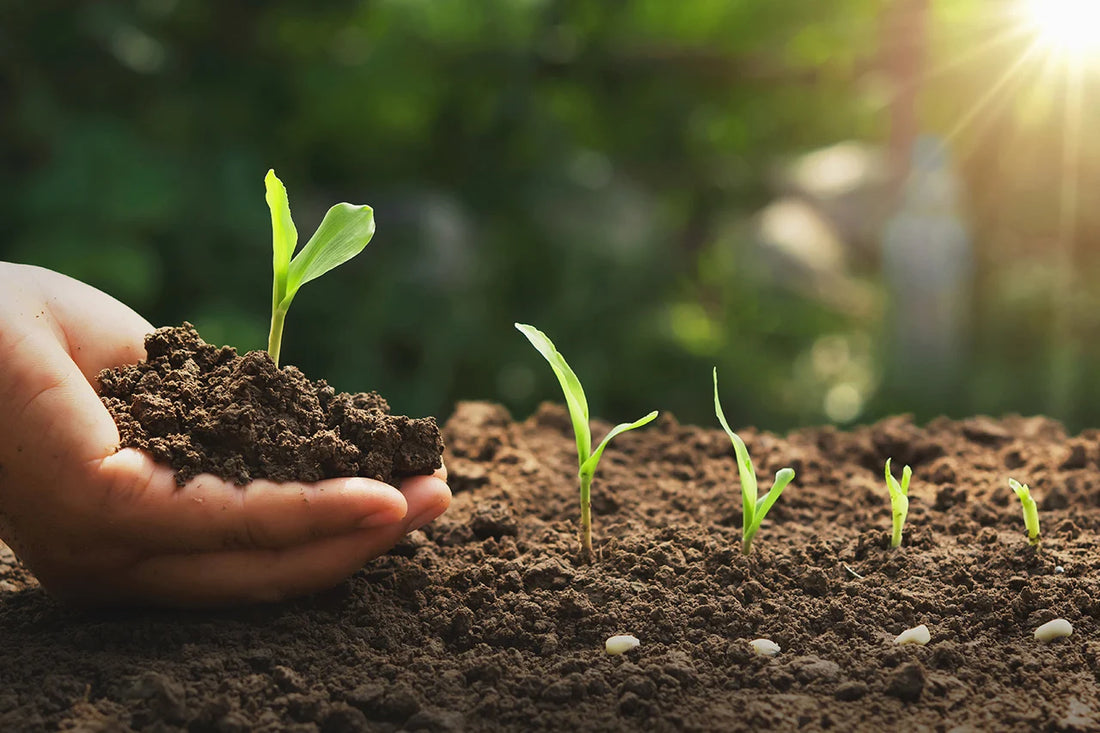Improvements in soil health, lower greenhouse gas emissions, nutrient recycling, and drought avoidance are just a few of the environmental benefits of compost. In this we talk about various composts and how they benefit and nourish plants.
Diverse compost kinds offer a variety of advantages, which can be confusing. In fact, if the compost is the wrong kind for the plants, it might harm them rather than help. Compost is meant to improve soil quality and encourage the growth of healthy, nutrient-rich grasses, plants, and trees.
Organic material must be broken down in composting. Each has benefits and drawbacks. Compostable materials are created by households, farms, restaurants, schools, offices, and commercial establishments.
For instance, compostable materials include food scraps, grass clippings, leaves, animal dung, and coffee grounds. Making affordable fertiliser for lawns, gardens, and farms is possible using composting. Here is a description of each kind.
Because different types of compost offer different advantages, it can be perplexing. In fact, if the compost isn't the proper kind for the plants, certain composts may do more harm than good to your plants. Luxury Landscape Supply wants to remove the uncertainty surrounding compost.
Here are the various compost varieties that may be purchased (or homemade) and the types of vegetation they are most effective on.
You might be unsure of the kind of compost that will serve your gardening needs the best.
In fact, I even contend that no two types of compost are the same! After all, there are so many distinct variables that can affect the final outcome.
Different types of compost
Compost
The term "compost" is fairly broad. However, in general, compost is defined as organic material that has broken down into a rich, black soil supplement.
It provides nutrients and serves as food for soil critters. It promotes and feeds soil life, which improves the health of plants. Compost is the end result of a compost pile. Many individuals favour composting their own trash, plant trimmings, leftover edible food, and weeds.
Although some people don't like the smell, compost is economical and environmentally friendly. If you don't want to let it decompose in your garden, you can buy compost. Compost has many advantages for plants.
So what various compost varieties are there?
Vermicompost
Vermin are what make up vermicompost, specifically earthworms. Vermicompost is advantageous to all plant life because earthworms can live in the soil, promote plant germination, and enhance the soil's capacity to hold water. These amazing organisms have the power to turn your yard into a lovely, flowering fantasy.
Worms, oxygen, and moisture are used in vermicomposting to safely and odourless decompose organic material. Basically, bacteria and worms both contribute to the heavy lifting. The preferred worms for this kind of composting are red worms. For the following reasons, vermicomposting is superior to the other two techniques:
Almost no smell (it should smell "earthy"). There are hardly any harmful anaerobic bacteria and methane. No need to often "turn" both indoors and outdoors. The fertiliser is simple to collect, especially with a tray-based composter. Children enjoy caring after the worms. minutes each week Worms settle into your home and start working for you. If you enjoy fishing, there is never a shortage of bait.
The non-acidic vegetable and fruit waste from your kitchen and garden are a favourite food of composting worms. They like grains like bread, spaghetti, oats, and rice. Just be careful to leave out meat, dairy, and fatty meals. You can use old herbivore manure from animals like cows, horses, and rabbits. Verify if the manure has aged for a few days or more.
A few clean, smashed eggshells add grit and help maintain the proper PH of the garbage. Fallen leaves and grass clippings are excellent in moderation.
Prior to ordering composting worms, choose the sort of composter you want to use to start vermicomposting.
Green sludge
Green manuring is a technique for fertilising the soil with nitrogen for subsequent crops, especially in organic farming, but it is also used in conventional farming. Farmers raise green and leguminous plants, which are then decomposed into the soil. Plants decompose and provide nutrients to the soil. Green manure helps cotton, maize, rice, sugarcane, and wheat. If you have a vegetable garden, the crops you grow can benefit immensely from this manure.
Manure from a farm
Farmyard manure is composed of the faeces of farm animals, such as cows or horses. Almost any plant will benefit from this manure, but exercise caution because certain farmyard manures are stronger than others and might damage plants if used excessively. You won't need to apply manure as regularly because it is nutrient-dense and persists for a long period in the soil of your garden. However, you should just purchase what you need because it doesn't store well.
Organic compost
You can control what goes into handmade compost, which is a benefit. Let's say you have access to a wide range of supplies. If so, the compost you produce will have a good nutrient profile from a variety of sources.
The size of the particles and the regularity of the decomposition will also differ. While some components might not have deteriorated as much as others, some will be thoroughly decayed.
Additionally, the harder woody parts will still be apparent. If the texture of your compost bothers you, use a decent compost sifter to remove the larger pieces.
The compost's maturity is the last consideration to make. Compost that is still actively decaying and nutrient-hungry can be problematic. It might deplete plants of nutrients if used in soil.
But completed homemade compost is cheap, sustainable, and a great soil conditioner.
Fungus compost
Another commercial item is this. The compost that mushroom growers have already employed is, in fact, compost. Therefore, "spent mushroom compost" is a better name for it.
Less food is available for new mushrooms to develop once the substrate has been used to grow them (this takes around 25 days), but it is still useful for gardens. Manure, some gypsum, and straw or hay are the main ingredients in mushroom compost.
Due to the high straw percentage of the original components, it is light and soft and typically drains nicely.

